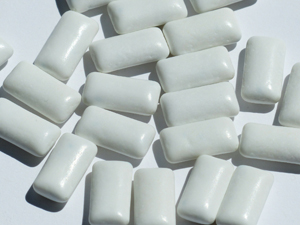Chewing Gum: Does it Affect Test Results?
Is it true or just another myth?
by Dennis Ernst • May 06, 2020

Your next patient arrives for a fasting metabolic profile. She says she has been fasting since she went to bed the night before, but you notice she's chewing gum. Is she fasting or isn't she?
Most laboratories consider "fasting" to be the complete dietary restriction of everything except water and medications for 10-12 hours. But when patients chew gum, elements of the gum are dissolved by saliva and ingested. A new study just published shed long-overdue light on the often-debated topic.
It is well known that the action of chewing gum causes the stomach to increase its acid concentration in anticipation of incoming food. In fact, the stomach produces as much acid in chewing-induced anticipation as it does to process a cheeseburger.(1) Such acid production has been linked to a simultaneous extraction from the blood of the commonly tested analytes chloride, sodium and CO2. To determine whether the changes in circulating blood during gum-chewing merit its inclusion in fasting instructions, researchers in Lithuania set out to quantify its affects.
Twenty-two healthy volunteers fasted overnight for 12 hours, then had their blood drawn between 8:00 and 8:30 a.m. for a multitude of commonly ordered laboratory tests. After the samples were drawn, subjects were instructed to chew sugar-free gum for 20 minutes. At 1, 2, and 4 hours after chewing the gum, subsequent blood samples were collected and analyzed for differences in the concentrations of 53 analytes.
Statistically significant differences were noted for the following: cortisol, insulin, C-peptide, triglycerides, uric acid, urea, amylase, alanine aminotransferase, lipase, creatine kinase, total bilirubin, direct bilirubin, phosphate, iron, potassium, thyroid stimulating hormone, red blood cell count, hematocrit, hemoglobin, mean cell volume, red cell distribution width, white blood cell count, lymphocytes, neutrophils, and eosinophils. Coagulation tests were not impacted by chewing sugar-free gum.
Chemistry results not affected by chewing gum include glucose, total protein, cholesterol, HDL cholesterol, albumin, CRP, creatinine, ALP, AST, GGT, LD, calcium, sodium, chloride and free T4. Monocytes, basophils and platelet counts were the hematological parameters not affected.
The authors concluded patients should be instructed to avoid chewing gum before blood collection for laboratory tests.
Reference
Helman C, Chewing Gum Is as Effective as Food in Stimulating Cephalic Phase Gastric Secretion. Am J Gastroenterol. 1988;83(6):640-2.
Related Posts and Information
overall rating: my rating: log in to rate
blood draw chewing gum preanalytical test results variable
